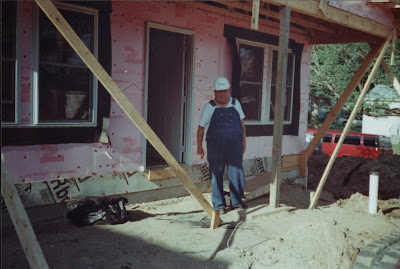The other night I stumbled across The Wrestler on TV. I remember seeing it at a Cineplex in West Chester, Ohio back in 2009, and halfway through it I had to get up and go to the restroom because I was crying so hard. That doesn't happen very often. I mean I cry at sad movies, but it's the normal wipe-a-couple-of-tears-off-your-face way. The Wrestler sent me into spasms. It had everything to do with Mickey Rourke's performance, as well as the director Darren Aronofsky's ear and eye. The scenes were so devastatingly specific they crushed me in a way that only real life does, almost as if I had lived through them with Randy "the Ram" Robinson.
It's very hard to depict working class trash in literature and in movies because there are so many traps and tropes and tricks, you can kid yourself into creating a stereotype while also feeling your doing the world a favor. Aronofsky's gift is taking a cliché -- a professional wrestled completely down on his luck searching for redemption -- and recalibrating the atmosphere and action so that it has a haunted, lived-in feel that makes you believe this shit is more than real: it's alive. The scenes when The Ram works at a deli-counter in a grocery-store are so vivid and dead-on you feel embarrassed and elated simultaneously, as The Ram doles out fried chicken and potato salad in plastic containers with a Vaudevillian shuffle and a showmanship that he just can't drop, even if he is working minimum wage and recovering from his latest heart-attack. And the scenes with his daughter have that same bruised tenderness, that sense that The Ram understands his own joke and yet can't stop telling it over and over and over to an empty house. The daughter, played with a glum effortlessness that fits each scene perfectly by Evan Rachel Wood, doesn't want to see The Ram in her front yard, but there he is, stepping out of his white-trash customized van, offering her gifts, haphazardly wrapped in old Christmas paper. First off he gives her a "gag-gift" to warm things up: a lime-green 80s bomber jacket. You can see by the look on her face what she's thinking: business as usual. But then The Ram gives her the actual gift, the real thing: a Navy blue pea-coat that seems just like her, sensible and working-class and a little glamorous too. That's one of Aronofsky's great touches: allowing The Ram enough self knowledge to understand the situation he's in, without losing the authenticity of being exactly what he is.
There's a stubbornness on screen that is not acted out; it's lived and somehow embedded in every move the camera makes. That desolate working-class neighborhood where The Ram's estranged daughter lives is in both my dreams and in my history, that feeling of being lost and wanting to be found but unable to tell anybody where you're hiding. And The Ram's trailer home too: nasty but not too nasty, a place you can see yourself living if you had to. Nothing is too much, and yet Aronofsky and Rourke capture the extremes to the point you feel them as a part of your own world. No judgment happens. There's a crystal clear connection between who you think you are and what you are seeing.
It's empathy, but without any sense of uplift or heroism involved.
In my stories I try to construct characters that live in the same cosmically disjointed and kind of dirty universe The Ram populates. It's truly hard because if you think about who might end up reading them it gets a little screwy. The artistry comes from not shellacking over faults and perversions and creepiness, but finding a way to make "sins" universal, implicating people in these lives with an effortless sense of connection and nonchalance. Or as Flannery O'Connor puts it (and by God I'm using this quote as an epigraph for the new book of stories): "It is when the freak
can be sensed as a figure for our essential displacement that he attains some
depth in literature.”













